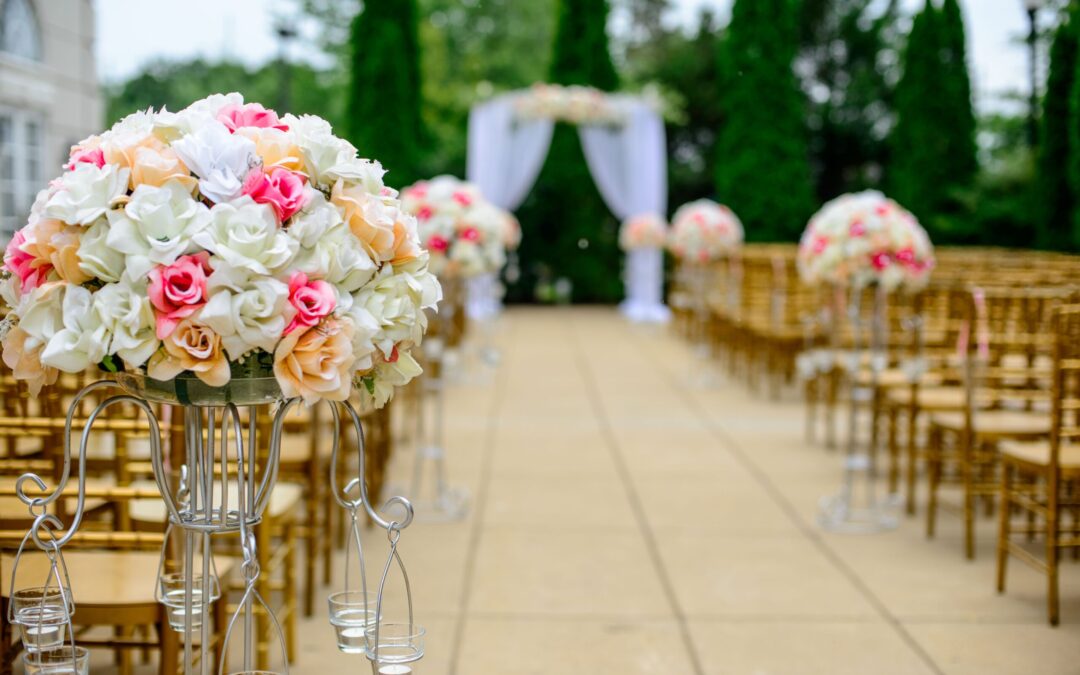Religions around the world have different beliefs, rituals from each other. Therefore, couples from different religions are wondering how to include both religions and their rituals in one wedding. So, if you’re planning an interfaith wedding, here are a few suggestions from us to get you started.
Be a good listener and extra understanding
Talk about your beliefs. Openly discuss your religious convictions and how they will be reflected in the wedding ceremony with your future spouse. The most important thing is to not criticize their traditions and try to be understanding. Spend some time and discuss one another’s faith and beliefs. Since this is the actual wedding, it is time to dive deeper and have a better understanding.
Discover new things with each other
Sit down with your future spouse and talk about what you’ve learned, once you have information and have had a chance to understand more about each other’s faith, customs, and traditions.
An open conversation with your partner, and a discussion regarding each other’s religion, will show your partner how important it is to discover new things with each other. It will mean more to you when your partner discusses these rituals and traditions, and you will be more receptive to adopting and appreciating these fresh insights and learnings.
Speak to a counselor or interfaith guide
The ideal method to organize a successful interfaith wedding is to ask for assistance from a wedding counselor and/or an interfaith advisor because they can most effectively assist you in this area. Consult with a counselor that focuses on working with interfaith couples so they can give you greater advice on how to integrate and blend.
A counselor can also help you sort out family issues that will be useful after the wedding and as you move forward with your new life together, such as what religion you will raise your children in. Before your wedding, these chats are imperative.
Find an appropriate officiant
Finding an officiant with experience officiating interfaith marriages will help ensure that your wedding ceremony is conducted properly. When choosing your officiant, consider their personality as well. You want them to be very well respected by both families and to feel at ease.
Plan the traditions, customs, and rituals
Before going any further, it’s crucial to emphasize that a neutral location is an ideal option. Doing both ceremonies at two different places of religion on the same day would be something unpredictable, even though sometimes it is not possible. Working together with your interfaith counselor or guide and a wedding planner or consultant can help you plan around this section of the ceremony without any problems. Additionally, having an unbiased third party take into account both perspectives will help you and your family see the bigger picture.
Couples also include ketubah in their wedding. They can buy ketubahs online, where they can personalize the design and text included in it to make it even more meaningful. The best ketubah is the one that you and your future spouse decide on.
Incorporate as much as you can
Personalize and incorporate everything about your wedding, from the decor to the dresses and outfits, to make it memorable for you both. A talented wedding designer or consultant may create gorgeous décor and design that will honor both religions. Again, in this case, working with multi-dimensional vendors can help produce something that is not just beautiful but also respectful of both families by keeping an open mind and incorporating as much as possible.
Involve your family
Include both families in your plans and keep them informed. It will be a terrific way to start a relationship, especially in interfaith marriages, to demonstrate that you are making an effort to respect and adopt everyone’s traditions and practices. It takes some effort to incorporate two families with diverse religions, traditions, and customs. But having a firm foundation and establishing the tone for more love, understanding, respect, and transparency begins with marriage.
Come through
This means that, while it is wonderful to have observed the traditions and rituals of both sides, you and your partner can also create “something” for the two of you. No matter how brief that part of the ceremony will be, remember to include something that also reflects the two of you, whether it be sand or candle unity or even something artistic like paint pouring. Coming through as a couple is like putting the puzzle together with the assistance of the interfaith blending of families.
Conclusion
Two lives are intertwined in marriage in a variety of ways, including religious views. Couples of different faiths may ask how to best incorporate their respective wedding traditions into a single celebration because different religions have diverse wedding rituals. The good news is that there are several viable options for organizing an interfaith wedding, and each one leads to a celebration that perfectly captures the essence of your special relationship in the first place.

